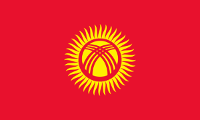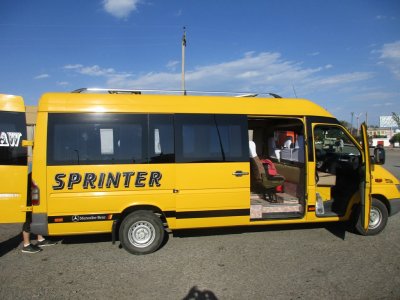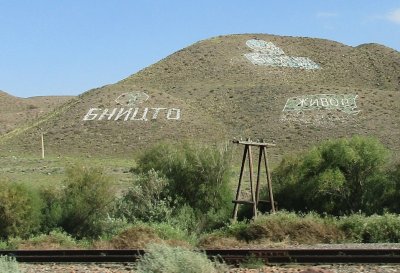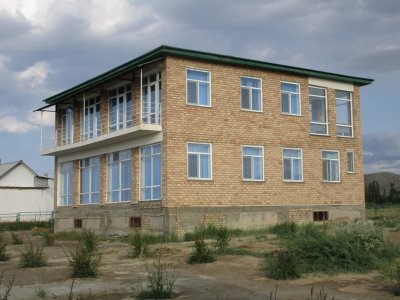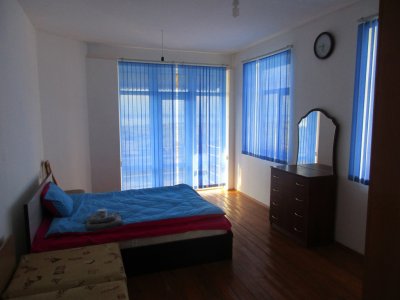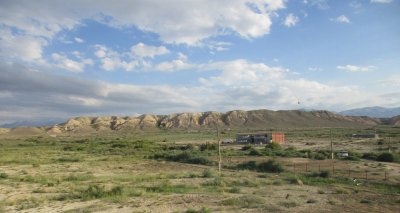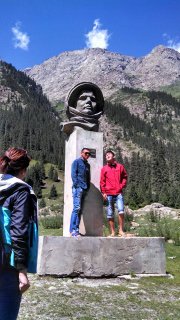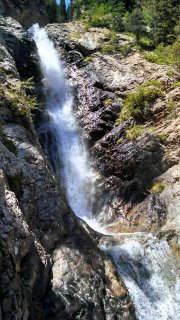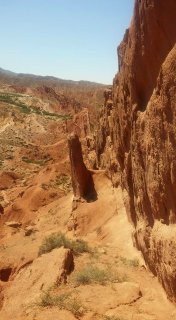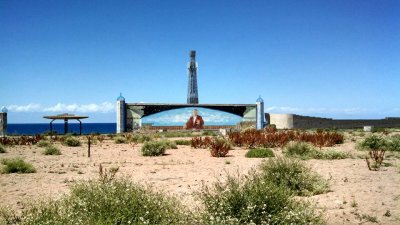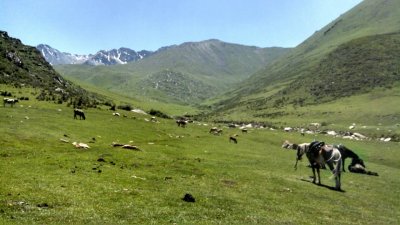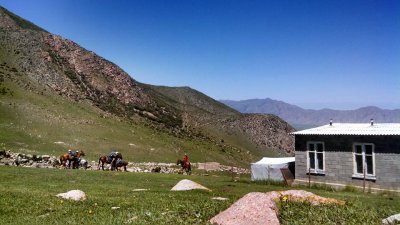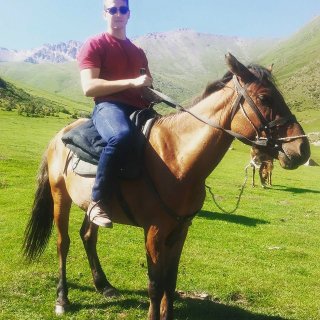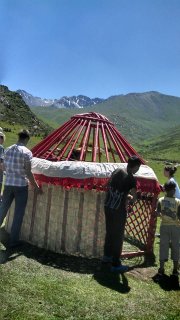Day 14: classes as usual, illness
Classes as usual today. I sat in on the fourth year class. I love those. I always learn something new.
After the weekend we had six kids ill. Tuesday another one became ill, which makes seven. Lewis is mostly recovered, but I've asked him to abstain from the hike this weekend just to make sure he is completely better; he'll be able to make up the hike when the second group comes. Marissa got bug-bit over the weekend, much more than anyone else. The bites are really sticking around and itching, which she is self-treating with a diphenhydramine (Benadryl) cream, which makes sense. I am concerned, though, that only she got bit like that, and I'm concerned that the bites are still there. Of course, some people are just tastier than others as far as bugs are concerned. When we were growing up, if there was a mosquito in the house, it went straight for my sister. Let's hope she never ends up around vampires.
Day 15: smooth sailing, bedbug bites
Classes as usual. Nothing special to report.
Student Marissa keeps having additional bug bites appear. She did some web research: the bugs resemble bedbug bites. According to her research the bites themselves may not be obvious for days after the actual bite occurs, depending on how quickly the individual's body reacts. The one's that appeared first are healing. She suspects that she may have got them in the bed during last weekend's double-overnight excusion. I inquired whether she remember which bed slept in. She did: room 4, first bed on the right (not the bed near the window). The second part of our group heads on that excursion this afternoon. I asked our local contact to have those beds inspected for the vermin; in the meantime we won't have anyone sleep in that room this weekend
BTW, the Russian word for bedbug is клоп (gen. sg. клопа́.)
The road to Barbulak
At three o'clock we hopped into our trusty Mercedes van to head out of town for a two-night excursion.
It's a longish ride, four hours. Our group is nine of our students, plus two from Texas A&M who came here through SRAS, plus five language coaches, then myself. Additionally there is Ulán, our driver, and Danár, our guide.
We start wending our way through the city, which takes quite a while, and then we finally hit the highway and head northwards a bit. After not too long a time we see the river Чу (Chu) on the north side of the rode, which doesn't look huge here, but is still a respectable river for such an arid place. There is some farmland, irrigated, of course, most of which seems devoted to hay and corn at first. Corn, by the way, became popular as a crop in the Brezhnev era, but it wasn't people food. It was forage for livestock (фура́ж для скота́, корм для скота́). After a decade or two it somehow become popular in the fUSSR to include it in one salad around New Year's, which, IIRC, was made of crab sticks, mayonnaise and corn.
As we proceed onwards, the mountains we pass through are barren and dignified. You know how in the US cities used to put their initial in large white rocks on a hill near the town? So the locals have done it quite a few places here, but instead of town names, they turn out to be advertisments for Живо́е beer or political parties or local turn-offs or ecotourism.
The temperature is in the lower nineties, but ever twenty kilometers or so you can sense a slight difference in the climate, at first due to the Chu and then due to increasing elevation.
It's funny how different and the same things can seem. The farmland looks pretty well the same as you see anwyhere in the US. Much of the countryside has the barren feel of the deserts and scrublands as one heads west towards Yuma along I-8 in Arizona, or along I-10 west of Blythe but before you hit Indio along. Then you get stretches of land like many you would see in the American southwest.
And then every once in a while you get a view of the Ala-Too mountains in the south, rising incredibly high, some peaks of which are still covered with snow even though it's July. Then you know you aren't in Arizona anymore.
Finally I see a sliver of blue. It's the western edge of Lake Issyk Kul, the second largest mountain lake in the world after Titicaca. We finally arrive at our boarding house, which is called Barbulak Hostel. It turns out to be much nicer than I had expected. '
It's a two-story affair, clean, decent showers and toilets. We do not occupy room four, just in case there are bedbugs. The main building is located in a fenced yard. To the east of the fence is the home of the mother and daughter (and presumably father) who take care of the place. In the west part of the yard is a two-story building which houses the kitchen and dining room on the first floor. I'm not sure at all what is on the second floor there. The rest of the yard is planted with apricot saplings, a tree that produces wonderful fruit in this part of the country and from which they make урю́к (urúk), dried apricots.
My room is on the second-floor and vastly nicer than I had expected. It's nicer than my apartment in Bishkek, and God knows the bed is much more comfortable than my sofa-bed.
Our evening meal is a chicken and vegetable dish, along with a plov that has some scant mutton in it. As with all Kyrgyz meals there is hot tea, bread, an option for 3-in-1 coffee (instant coffee with sugar and milk powder). There is also борсо́к (borsók), small bits of fried bread covered in honey. The food is actually quite a bit better than I was expected, and it's home-cooked by the mother and daughter.
There is some daylight left, so most of take the 10-15 minute walk to the beach. The sun is near to setting. We are warned the water may be too cold. Alas, youngsters can be so timorous! But there is no way in hell that I am going to cross half the planet and fail to swim in the lake; it is a once in a lifetime opportunity. The glorious group leader heads straight into the water.
The water is indeed a bit chilly, but having seen the way paved by yours truly, student Jared follows briefly after. (Jared will usually be the first to do everything on the trip. He is always at the head of a hiking group, always going for the highest peak and most distant view. Not only is he athletic, but he is actually really sharp, too. I've been impressed with him when I have observed the third-year class. His grammar teacher says he has almost no accent.)
Alas, the submerged shoreline is really rocky and irregular. You have to proceed quite cautiously. Water-shoes would really help. Nonetheless, with Jared and me out there, many of the rest of our students come in as well. Alas, the language coaches are all timid.
The wind has whipped up. I leave the water, and the wind dries me. The language coaches are incredulous; “Aren't you cold, Don?” Nope. It feels pretty good. And for the first time since I have arrived in Kyrgyzstan, I feel happy.
Soon the rest are out of the water, and we head back to the boarding house. Most of the language coaches are staying in my part of the building, as is student Patrick. Before bedtime I spend some time with them downstairs. I'm on the floor stretching out. Haven't done yoga forever. The stretching feels amazing. And the youngsters are astonished that I can do pincha mayurasana (forearm stand), an arm balance with legs intertwined to the right, and of course a handstand. If you are a yogi out there, then let me say these kids were easily impressed. The poses were pathetic.
They mentioned they wanted to dance. Damn. That means they will make noise half the night, and I really want to sleep. But the language coaches will involve our students in their noise, so I depart with, "It's time for the old man to go to bed. Don't worry about making noise. I won't mind." Normally that wouldn't be true: I like my peace and quiet. But this time I decide ahead of time to view it differently. The hours wear on, and I hear the happy sounds of fledgling Russian percolate up to my bedroom; It was a good decision. Plus they pretty well call it quits by midnight since they know we have to be up at 7:30 in the morning, which is inordinately early by Russian/Kyrgyz standards. So I actually get a full six hours of sleep.
In the middle of the night I wake up. I briefly open the window, which somehow the mosquitoes don't notice. There are almost no bright lights hear, so the stars are bright, and I see many faint stars I haven't seen in many years. Cassiopeia crowns the view. It's quiet here. Quieter than anything I have experienced in the long time. I return to sleep.
Barskaun and Aalam Ordo
It is Saturday. I wake up and see this view.
Anyone who has grown up in the southwest has seen a thousand similar sights. The only thing missing is cactus, and even that is not lack is not immediately obvious.
We have a breakfast of fried eggs and bread, hot tea and coffee, and then we head to the river Barskaun. The ride is probably 90 minutes-ish. The generic landscape is as barren as I-10 thirty miles east of Indio, with the exception of the places they irrigate, which are flourishing farmland. Eventually we start ascending into the mountains. Mountain slopes slowly accumulate grass and shrub. Eventually stands of trees appear. Finally we arrive at a place from which we can hike to some waterfalls.
This was one of the favorite places of Yuri Gagarin, commonly regarded as the first man in space. Not far away is a military training center where he trained. The four waterfalls were supposedly one of his favorite places. Where we park, there is a dignified monument to him.
Across the road is another image carved in his honor in a boulder.
The images are a creation of national pride and gaucherie, distracting one from the natural beauty, . It makes me sad they are here. Of course we take countless pictures.
That aside, this place is as beautiful as any I have ever seen. Grass covered mountain slopes interplay with stands of trees. A few entrepreneurial types have set up yurts and have brought horses with them, which they rent to visitors. The Barskaun, a snow-fed, frigid stream, chatters happily nearby. A mare and her foal nibble on the local grasses. There is a feeling of wholeness and sanity to the place that delights the heart.
We ascend to the first waterfall. The hike is short and beautiful, but quite steep. I regret not having real hiking boots. When we reach the waterfall, miniscule drops of water hesitate in the air. Thick slabs of moss create little shelves here and there. Rocks provide a resting place. We pause.
We move on to the second waterfall. More beauty.
We pause to lunch. There is a set of women here who have bikinis under their hiking clothes, plus two men in atypically short shorts. They enter the pool at the bottom of the waterfall and perform their ablutions. Folks, this is snow melt...
We return to our bus, and head to Skazka ravine. Skazka in Russian means fairy tale. In a fit of sarcasm the previous evening I had told the students it would be magical... We arrive. The day previous there was an incredible rain storm that had flooded the road with sand and water; only the thick sand remains. Our trusty bus cannot make it the whole way, but our driver insists that the remaining distance is only 100 meters. People from the fUSSR are completely incapable of making rational estimates of time or distance; it was at least half a kilometer. We reach the starting point and climb the most curious path. Imagine two slices of sedimentary-aggregate rock rendered vertical by continental drift, between which is 6-10 feet of climbing space. We ascend.
At the top is in fact a lovely view of the pale rose and yellow rocks and cliffs.
Still, I'm an Arizona boy. Having seen the Grand Canyon and Sedona, Skazka doesn't seem so much magical as simply... sorta vaguely kinda interesting for someone from out East who has never really seen anything like it before. The path thereto has been a bit awkward. Not all of us want to press on to the next point. A few do, and we can observe them from our stony perch. Actually, it strikes me that the second path is easier, even though I myself do not attempt it. I'm half tempted to come again, just to try the second route.
From there we get back on the bus to head to Aalam Ordo, which was originally intended to be a cultural exposition built on the shore of Issyk-Kul in honor of a previous president. The president was run out of the country, and money for the project dried up.
It remains incomplete. The lake itself of course is impressive, but the enormous fading mosaics and empty yurts induce melancholy. The place remains a monument to natural beauty and the failed dreams of a greedy politician who didn't actually care for the people of his country.
Despite the latter gloomy observations, there is a pier here in excellent repair, from which one can dive into the suprisingly clear water without fear of hitting the bottom. Our students shuck down to their what-nots and dive in. Marvelous. There is a fairly dicey ladder to get up on the pier from the water; most likely it was intended as decorative ironwork. The water is frigid and marvelous. Foma dives to the bottom and manages to grab a handful of sand. Raquel swears she always hits bottom, which is unlikely considering that all our most athletic students have dived in headfirst and failed to do so. Raquel assays a timid jump in, and manages to hit the bottom. Let this be a lesson to us all about timidity.
The most physically fit of our group is most likely Caillie. My guess is that she is about 6' 1", and she is an aspiring body builder. (I mentally name her наша амазонка ‘our Amazon.’ She really does have the whole Lynda Carter thing going on, but with shorter hair.) She runs every morning, even when we are on excusions. She easily outdoes all of the guys in pull-ups, using the skeleton of the roof at pier's end as a pull-up bar. She dives from the highest height. Plus she is just damn smart. Let me tell you: when the nuclear apocalypse hits, I want to be on her side.
Then suddenly a young Kyrgyz man appears. He is quite short, but as fit as the day is long. He jumps off the pier, executing a jacknife. Then another appears, doing the same with a swan dive from the skeleton of the former roof. Then a couple more who are more timid appear. And then there is a repetition of showing off. Something seems odd. Eventually it becomes clear that these are young men with sexual designs on the women in our group. They particularly direct their attention to Mikal, a girl who has chosen to wear a bikini top so thin as to reveal her nipples. She is a great swimmer, a nice person, has a bright mind, but on this occasion her clothing has attracted negative attention that she probably doesn't want. Truthfully, it is not a smart thing to wear in a country that is unreformed by feminism. I'm rather surprised that she doesn't seem to be aware of it. I find myself concerned about the collective group of young Y chromosomes that has appeared. So is our language coach, Rustam. I decide it is time to leave and so direct the students. We gather ourselves and begin to depart. Many of our male students have already left. I ask one of the students from Texas A&M to remain with me so we can provide a male rear vanguard to our retreat. He agrees, and I find myself grateful for his consideration. As we leave, the catcalls and shouts of "I love you, baby!" begin. I'm think the timing of our departure was good. We leave without incident.
Homeward we arrive. A dinner of watery laghman, noodles covered with a soupy-meaty addition, commences. Very nice.
Most of the students head to the shore for last minute swimming and a bonfire.
Hours later we sleep content.
Horseback riding, yurt building
Wake up. Breakfast was simply bliny (Russian crepes) with strawberry varenie, which is like pureed strawberry jam. We hopped on the bus, drove for an hour along dirt roads that kept getting worse, through Kyrgyz villages that stored horse manure for future cooking and heating. The roads kept getting worse. We stopped and switched into other vehicles, one of which was a Mistubishi SUV, and then we got to the really bad roads. Holy crap. Steams, rocks, inclines that I thought would flip us over. Our driver didn't bat an eye. Uncle Harry and my brother might have liked this road, but me, I thought it was insane.
As we drove along, the brown scrub land began to yield to grass-covered slopes, and suddenly everything was beautiful. It reminded me of nothing so much as the landscape in Brokeback Mountain; down below were the dry scrub lands, then you have these beautiful mountain slopes covered with short grass and multitudinous tiny flowers. Nearby is another snow-fed stream. The granite rocks and boulders are flecked with mica and covered with golden-orange lichen. Son of a geologist that I am, I look closer and see white and gray and black lichen as well. And there one the slopes are the horses.
We have come to ride horses. The driver and his family live here during the summer with their horses, and they take people on horse-back rides and backwoods camping. I literally haven't ridden a horse in forty years. The guides know their business. We have been trained in advance by video, and we have signed the wavers saying that we understand the basics. The ride is made fairly simple, really, criss-crossing mountain slopes. We learn that чу (choo) means ‘giddyup’ and дррр (drrr) means ‘whoa.’
I go with the third and final group. I remember reading in "The Horse and His Boy" that one should press in strongly with one's thighs to maintain one's seat, but not to dig in with the heels. I make sure to practice this. At first my body is tight as can be, but as the minutes pass I slowly learn which parts can relax and which should stay active. The scenery is stunning. Snowy mountain peaks in the distance. Fresh grass. Dramatic peaks and slopes. The sounds are the clop of the horses' hoooves, the lowing of the cattle, the occasional bray of the donkeys.
Then we have lunch prepared by the local family, after which we have a little yurt-building workshop.
Old technology does not mean simplistic technology. The main wall construction is a wooden trellis, collapsible in accordion fashion, and each joint is completed not with a metal or plastic axle, but with a carefully made leather connector. Expanded out and wrapped tight with hand-woven woolen belts, the trellis achieves structural stability. Then someone stands in the middle to hold up the crown of the yurt, and wooden side supports are added in and bound with rope. Then a windscreen made of local grasses sewn together is added on the outside. Decorations are hung on the frame with the beautiful side facing inward, along with a chandelier from the crown of the yurt. Then hand-made felt coverings are hung over the whole thing and bound with ropes. Our building is complete. We enter to admire our handiwork. It's amazing. The whole process included aesthetics the whole way, so when you enter the yurt, it is actually rather pretty inside.
The locals tell us that when you enter a yurt, you must sing. Yeah, that sounds like the kind of bunkum one feeds to tourists, but of course these things also form group identity. The students are too timid to start. This is where the glorious group leader again chimes in, singing an old Appalachian song called "Some have fathers bound for glory," a tune almost no one has heard, unless they went to Silver Dollar City in Missouri and heard John Corbin sing it. It's an odd, haunting melody, well-suited to strange abodes and lands. Some others contribute as well. Jon presents a riddle, "A cowboy, a yogi and a gentleman enter a bar and sit down. How many feet are on the floor?" (Nope, I'm not going to tell you the answer.) I tell the story of the pig with the wooden leg. And finally the group realizes they all know all the words to one particular song. The song is "Bohemian Rhapsody." "You have got to be kidding," I think to myself. Sure enough, every word, every inflection. And our Kyrgyz guides follow that little gem up with Kyrgyz songs as well.
Eventually we are tired of sitting in the yurt and get out. Our language coaches decide we need to learn a game called День и ночь "Day and night," which turns out be the same thing as duck-duck-goose. Hmph, I have too much dignity for this. I head to the river and bask in the sound and the last minutes of beautfy before we depart.
Back home in the States I have an indoor job. I have just spent most of two days in the sun. It has been years since I have done that, embarrasingly enough. I think I have some heat exhaustion, which is pretty damn embarrassing for an Arizona boy. When my head hurts, I get particularly sensitive to smells, and now the presence of horse manure and cow dung become oppressive to me, so I get back in the SUV with a sense of relief. It will be along, hot, air-conditioning-less 90° ride back to Bishkek, but I'm ready for it.
<< 1 ... 27 28 29 ...30 ...31 32 33 ...34 ...35 36 37 ... 43 >>

